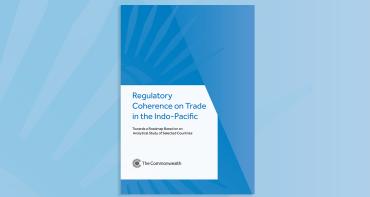Effective public administration vital for socio-economic development – Commonwealth Secretary-General at the Commonwealth Public Service Ministers Forum
The Commonwealth has always set a high priority for member states by nurturing and embedding values that result in trustworthy, reliable and impartial public administration that is free of corruption, bias and inertia.
Commonwealth Secretary-General Kamalesh Sharma made this point at the opening of the three-day Commonwealth Public Service Ministers Forum in New Delhi, India, on 24 October 2012.
He said the Commonwealth has a shared tradition of public administration based on a common heritage, where earlier experiences and identified solutions and good practices are often appropriate for application elsewhere which can be of relevance and advantage.
“The compact between government and people, between citizenry and public administration, whether at local, regional, national level – and equally at intergovernmental level – is fundamental to advancing both development and democracy,” said the Secretary-General.
|
Commonwealth Public Service Ministers Forum The forum will examine ways in which the public sector can create an environment that is conducive to investment with growth led by the private sector. |
“It creates trust, helps confer legitimacy, strengthens the rule of law and creates an enabling environment for inclusive and dynamic social and economic progress. I believe the evidence is overwhelming that the perception of a trustworthy, reliable, impartial and honest public administration is fundamental for citizens’ trust in democracy and the state. The quality of public administration is in other words critical to a people’s sense of responsive governance and well-being.”
The Secretary-General stressed that an effective public administration has to be responsive to the needs, contexts and circumstances particular to that country. He noted that Commonwealth countries have demonstrated “special accomplishment in most areas of governance, including public administration". Mr Sharma said this is borne out by the World Bank’s Worldwide Governance Indicators and the Mo Ibrahim Index covering Africa.
Good governance is intrinsically desirable as it is instrumental in facilitating and driving forward economic growth, added the Secretary-General. He cited the International Monetary Fund’s forecast of Commonwealth economies growing at an average of 7.3 per cent over the next five years.
“Such findings mean that as the post-2015 goals are developed, strengthening public administration within a framework of democratic governance is vital and pivotal to our development ambitions,” said the Secretary-General.
“An area of emphasis in our work will be on supporting the public administration of the smallest island countries in the Commonwealth, by assisting them in learning from each other and innovating on the basis of what works in delivering social cohesion, economic growth and political stability.”
Mr Sharma added that embarking on a process to streamline and strengthen public sector administration can be a formidable challenge as it is for the design of an appropriate structure, system and size of public service. This is particularly so due to the rapid rate of technological change that is transforming many traditional concepts of how public service is managed, administered and delivered. He stressed the importance of innovation in addressing challenges.
President of the Commonwealth Association for Public Administration and Management, Paul Zahra, said public service administrations are essential tools of government for achieving national goals.
“Public administration is the essential infrastructure for linking government, the rule of law, development and citizens. Like other public infrastructure such as water, telecommunication or electricity, public administration is invisible when it is working well. But when infrastructure fails, the consequences are disastrous for the nation,” said Mr Zahra.
“Stong political leadership is needed to ensure that public administration is maintained, updated and kept sharp.”
India’s Minister of State for Personnel, Public Grievances and Pensions, V Narayanasamy, said a major challenge for policy-makers and public service in developing countries is to find a balance between infrastructure development and social welfare.
“Governments are finding it increasingly difficult to balance the needs of inclusiveness and social welfare with the compulsions of a free market economy,” said Mr Narayanasamy.
“The social trade-offs of the free market are coming under greater scrutiny. The imbalances are to be addressed at once to make the development sustainable and self-propelling. There is an increasing trend of expectations of the citizens for greater transparency and accountability in government processes. All governments have been devising various mechanisms through which transparency can be upheld and accountability established.”
Mr Narayanasamy observed that different countries have introduced the reform of their public services in response to challenges posed by the changing economic, technological, social and demographic scenarios. He added that good governance is critical for the success of public administration.
“Any system, policy or machinery will only succeed if it is fully accountable to the stakeholders and its processes are transparent to all. Citizens are stakeholders in the case of public service delivery and their full engagement and participation is the key to any successful public service delivery,” he said.



